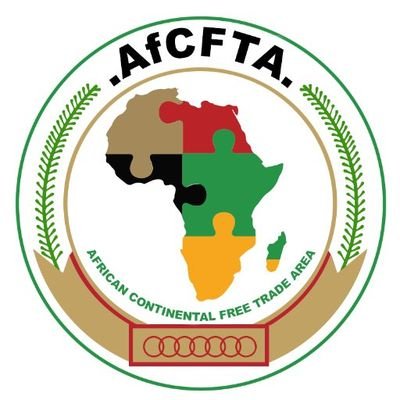AfCFTA to lift 30 million Africans out of extreme poverty
The president and chairman of the Board of Directors of the African Export-Import Bank (Afreximbank), Prof. Benedict Oramah, has stated that the African Continental Free Trade Agreement (AfCFTA) would lift 30 million Africans out of extreme poverty and boost the incomes of nearly 68 million others who live on less than $5.50 a day. Delivering […]

African Continental Free Trade Agreement (AfCFTA)
The president and chairman of the Board of Directors of the African Export-Import Bank (Afreximbank), Prof. Benedict Oramah, has stated that the African Continental Free Trade Agreement (AfCFTA) would lift 30 million Africans out of extreme poverty and boost the incomes of nearly 68 million others who live on less than $5.50 a day.
Delivering a lecture titled “The Trade Route to Poverty Reduction in Africa in a De-globalising World” at the Eighth Biennial Lecture of the Goddy Jidenma Foundation, Prof. Oramah noted that the trade has the potential to boost Africa’s income by seven per cent to $450bn by 2035, “increase Africa’s exports by $560 billion, mostly in manufacturing; spur a 10.5-per cent wage gain for women and 9.9-per cent for men; and boost wages for both skilled and unskilled workers.”
He said the agreement provided an opportunity for Africa to take its destiny into its own hands by opening regional supply chains that would foster economic growth and development.
Noting that 54 countries had signed the agreement, and 47 had ratified it, he announced that Afreximbank and the AfCFTA secretariat had established an AfCFTA Adjustment Fund to provide compensation to eligible countries for tariff revenue losses as a result of the implementation of the AfCFTA.
Hardship: Labour mobilises for nationwide protest Despite FG’s warning
FG begins payment of private enrolment contractors
“The adjustment fund will also provide funding to countries and businesses to enable them to adjust in an orderly manner to the new trading regime,” he said.
Prof. Oramah argued that to avoid falling victim to the discontent that negatively impacted globalisation, the AfCFTA needed to be complemented by free movement of Africans across the continent,” he said:
“With the right to work, and to address the impediment posed by a lack of access to trade and investment information, Afreximbank was offering an artificial intelligence-enabled trade information platform under the brand name Tradar Intelligence. For the same reason, the bank was collaborating with the African Union Commission (AUC), the AfCFTA Secretariat, and others to host the biennial Intra-African Trade Fair whose first three editions held since 2018 attracted over 70,000 visitors, 4,000 exhibitors, and about $120bn.”
He added that as a solution to the 42 fragmented payment systems across Africa, Afreximbank, in partnership with the AUC and the AfCFTA secretariat, had launched the Pan-African Payment and Settlement System (PAPSS).
“This domesticates all intra-African trade payments. Afreximbank was supporting that system with a $3bn settlement fund. By May 2024, an African currency trading platform would also be launched under the auspices of PAPSS.”
